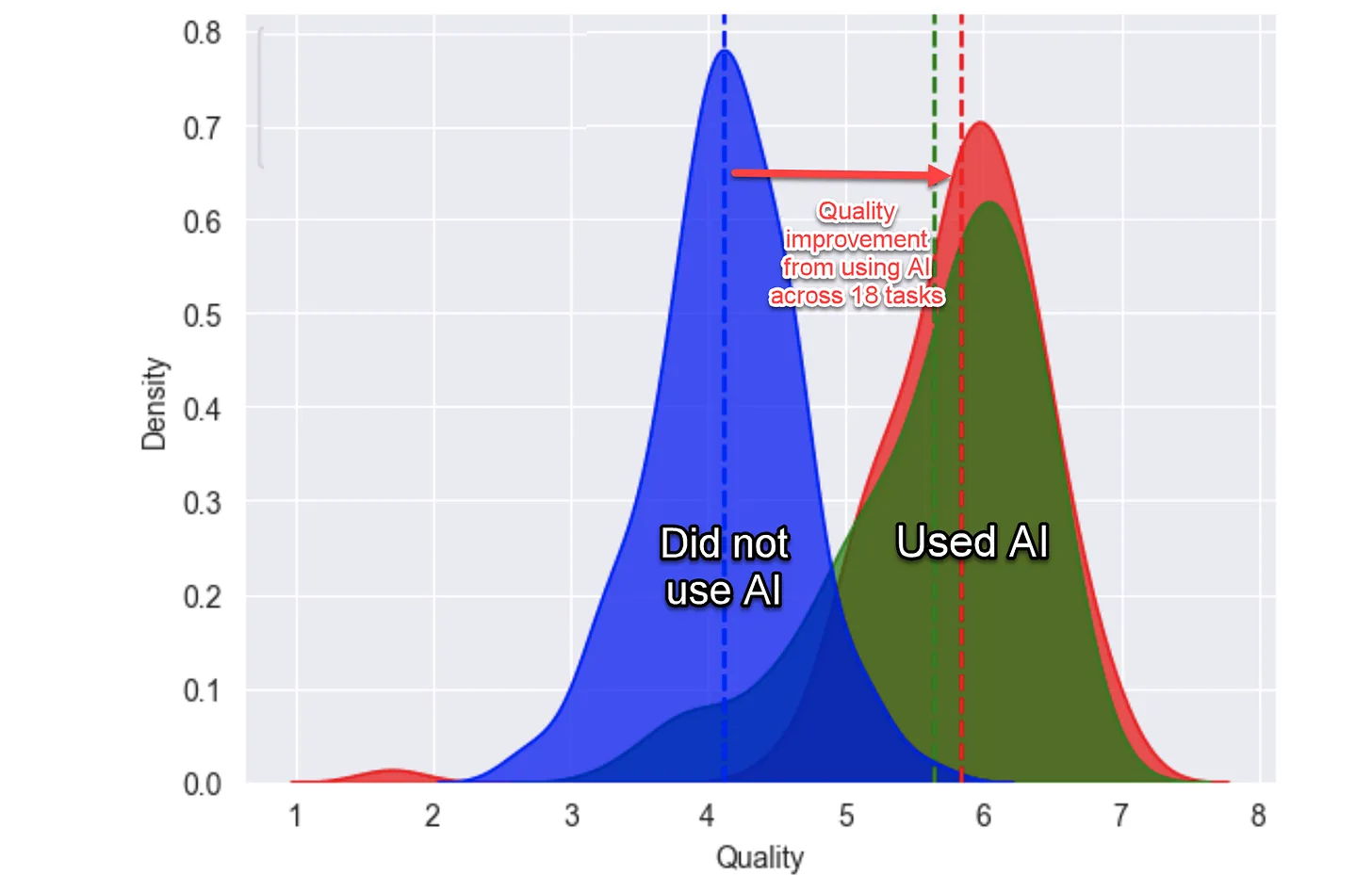Will AI Take My Job?
Explore how AI enhances, not replaces, human jobs, focusing on productivity boosts and collaboration in the workplace.
• AI improves productivity significantly across skill levels.
• Human-AI collaboration is key to future work dynamics.
• Trust in AI is crucial for broader acceptance.
A comical TV commercial on the impact of AI. The TVC was created by humans.
One critical question looms over businesses and institutions in today's rapidly evolving technological landscape: “Will AI take my job?” This question stems from the growing capabilities of artificial intelligence and its potential impact on the workforce. A recent study involving GPT-4, a state-of-the-art Generative AI model, and participants from the Boston Consulting Group (BCG) and various other sectors sheds light on this issue. Contrary to fears of AI replacing human roles, the findings suggest that AI is poised to enhance productivity significantly, with performance improvements ranging from 17% to 43%.
The Experiment: Setting the Stage
The study was meticulously designed to provide concrete insights into the real-world implications of GPT-4 across different skill sets. Participants, a mix of individuals from BCG and other backgrounds, were grouped based on their proficiency levels. Each group undertook a series of tasks, both with and without the assistance of GPT-4, to measure the differential in performance.
The Outcomes: AI as a Catalyst, Not a Competitor
The results were nothing short of groundbreaking. When participants leveraged GPT-4’s capabilities, a significant enhancement in performance was observed across all groups. Participants in the bottom-half skill category, often perceived as more vulnerable to AI-driven job displacement, experienced a remarkable 43% increase in performance. On the other hand, top-tier participants, who were already performing at high levels, still managed to elevate their output by 17%.
This chart compares task performance: the red group used AI with an overview, the green only used AI, and the blue used neither.

Broader Implications: Beyond the Numbers
While the quantitative results are compelling, the study's broader implications are even more profound. As Australian Minister for Industry and Science Ed Husic highlighted in a recent op-ed, “Productivity is central to the government’s response to artificial intelligence. We want to ensure AI and other technological advances make businesses more productive and people’s jobs better.” This sentiment aligns perfectly with the study’s findings. Instead of viewing AI as a potential job usurper, it emerges as a powerful tool that amplifies human capabilities.
Reframing the AI Narrative: A Call to Action
It’s high time we reframed the narrative around AI. Instead of perceiving it as a looming threat, we must recognise its potential as a collaborator. Trust in technology is critical for this shift. Husic emphasises the importance of trust in technology as a critical priority. “Without trust, workers and businesses will remain sceptical about AI’s potential benefits,” he notes. This sentiment resonates deeply, especially in light of the study’s findings.
Conclusion: The Dawn of the AI-Human Era
The pressing question, “Will AI take my job?” finds its answer in the collaborative potential of AI and humans. As the study suggests, the future isn’t about competition but collaboration. It’s about harnessing the combined strengths of human intuition and AI’s efficiency to craft a brighter, more productive, and innovative future. For businesses, entrepreneurs, professionals, and society, the horizon is not just promising; it’s transformative. As Husic aptly concludes, “Getting the balance right will be important. Important in allowing AI to enhance our economic prospects and national wellbeing and protecting Australians.”
For a deeper dive into the research and findings discussed in this article, you can access the complete study here:


